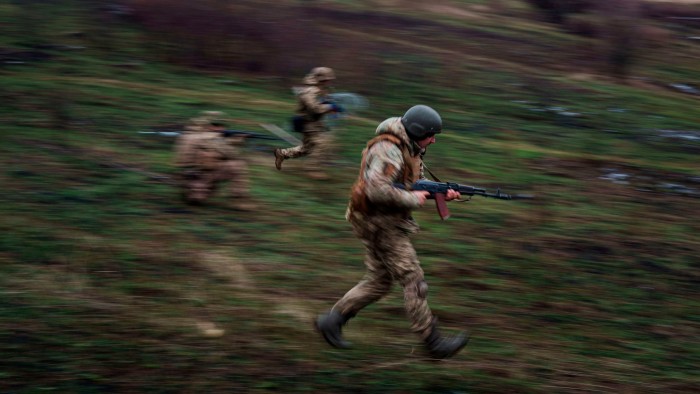Western capitals are bracing for a potentially decisive week for European security, as the US and Russia begin talks to end the war in Ukraine and European leaders hold an emergency meeting to respond to the fast-moving negotiations taking place without them.
Europe’s most powerful leaders will gather in Paris on Monday for crisis talks on Ukraine and the future of European defence, sparked by Donald Trump’s decision to open peace talks with Russia. Those talks will formally begin in Saudi Arabia this week when Trump’s top diplomat Marco Rubio sits down with Russia’s Sergei Lavrov.
The Rubio-Lavrov meeting aims to lay the groundwork for Trump to meet Vladimir Putin, less than a week after the US leader shocked European capitals by agreeing with his Russian counterpart to start peace talks.
It will underscore the Europeans’ lack of input into negotiations that could ultimately reshape the continent’s security architecture.
“This is the beginning of the beginning. Things are definitely moving,” Alexander Stubb, Finland’s president, told the Financial Times. “Are Europe’s tectonic plates shifting?”
Referring to the date of Russia’s full-scale invasion, he added: “I think the world order started to shift on the 24th of February 2022, and we are now seeing the direction in which it might be going.”
Leaders including UK Prime Minister Keir Starmer, Polish Premier Donald Tusk and the heads of EU institutions and Nato will huddle in Paris tomorrow at the invitation of President Emmanuel Macron.
They will discuss concrete plans aiming to safeguard European defence regardless of future US engagement, said officials briefed on the preparations, along with how best to support Ukraine and strengthen their negotiating position.
Starmer said it was a “once-in-a-generation moment for our national security where we engage with the reality of the world today”.
“It’s insane how fast this is moving,” said a western official briefed on the talks. “All [Europe] must do is give Ukraine as much as possible so that it can better say ‘no’ to things rammed down its throat [by the US and Russia].”

Dmitry Peskov, Putin’s spokesman, said Trump’s decision to open talks was a “powerful signal that we will try to solve problems through dialogue and talk about peace rather than war,” in comments broadcast by state TV on Sunday.
The European leaders in Paris will discuss ideas including a possible deployment of European troops to Ukraine that would be stationed behind, not on, a future ceasefire line, as a “reassurance force”, said two officials.
But there is uncertainty over what role the US would play in potentially guaranteeing the security of any Nato forces in Ukraine. Trump’s team has ruled out deploying American troops to Ukraine, but European officials say the US has not excluded the possibility of providing external support to any deployment by Nato allies.
Many European governments are also uneasy about responding to a US request this week for specific details about weaponry, money and peacekeeping troops that they would be prepared to send to post-conflict Ukraine, according to multiple officials briefed on the discussions between capitals.
“The general feeling is that this is a good exercise in terms of thinking about what each can offer, but that the response to the US should be collective,” said one of the officials.
Stubb said: “I hope that whatever comes out of Paris is something which is appealing to the Americans so we can have more skin in the game.”
European leaders and diplomats spent much of their time at the Munich Security Conference over the weekend trying to parse the roles of the various members of Trump’s negotiating team, and how they might ultimately shape the president’s approach.
One senior European official said there was “95 per cent agreement” with Keith Kellogg, the 80-year-old retired general appointed as Trump’s Ukraine envoy, who has described Russia as “the enemy”.
But the official cautioned that the views of Kellogg, who was not named as a member of Trump’s four-man negotiating team, did not necessarily chime with those of Rubio, for example, “who might not see it the same way”.
In a meeting of G7 foreign ministers at Munich, Rubio was much less forthcoming with his views on Ukraine, said three people briefed on the discussions. Two said he noted that the talks with Lavrov would focus on logistics and planning for a Putin-Trump meeting, and would not go into details of negotiating positions.
“With the previous administration [under Joe Biden] there was no dialogue, just war without end,” Peskov said on Sunday. Trump’s stance “should be more impressive for any right-minded person or state”, he added.
Peskov also said Russia would “defend its interests so as not to be seduced by any false promises” during talks with the US.
Additional reporting by Felicia Schwartz in Munich, Leila Abboud in Paris and Lucy Fisher in London
Read the full article here




